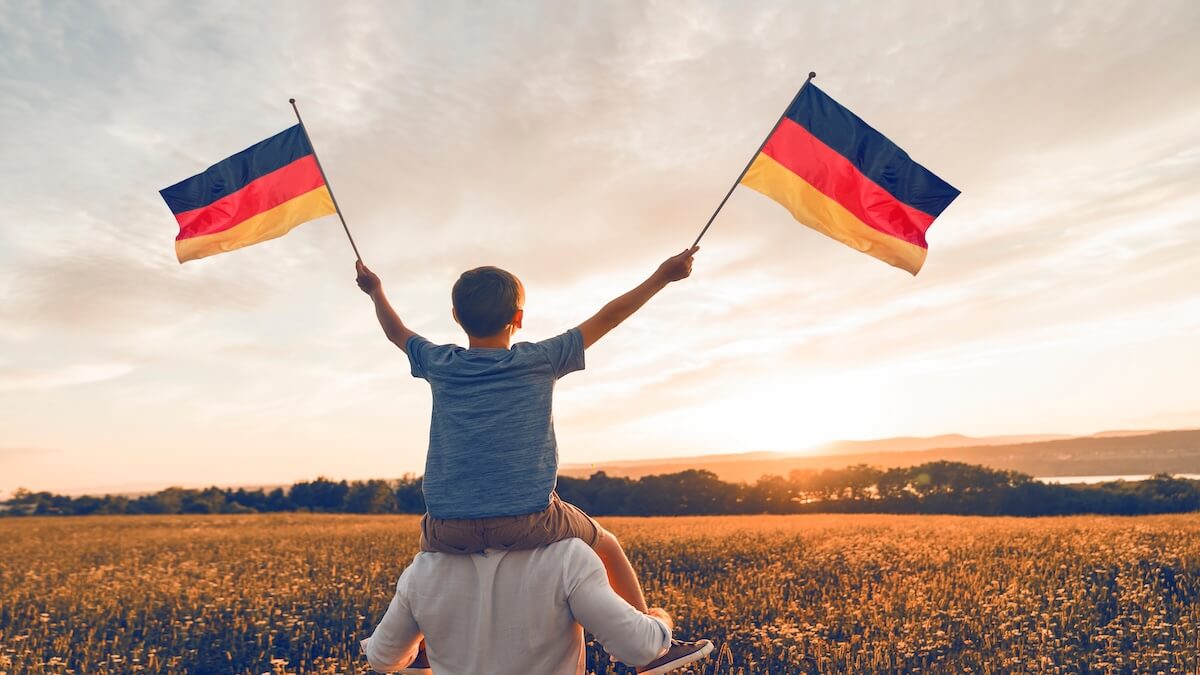Buying a car in Germany as an American: A complete guide
Learn all about buying a car in Germany as an American, including costs, requirements, and how to import your vehicle back to the US.

Living in Germany can be an incredible experience, but being apart from your loved ones is never easy. The family reunification visa allows close relatives to join you and build a life together legally in Germany.
This guide covers everything Americans need to know, from requirements and application steps to costs and processing times.
We'll also introduce Wise — your international money transfer alternative. Use Wise to send stress-free transfers to over 140 countries - all at the standard mid-market exchange rate.
The family reunification visa in Germany allows non-EU citizens with a valid residence permit to bring close relatives to live with them.
Once approved, family members can apply for their own residence permits, often with permission to work, study, and access public services.
For Americans, this visa is particularly useful if you plan to stay in Germany for more than a short assignment. It provides a legal pathway for your family to settle alongside you, creating stability in areas like healthcare, education, and long-term residency.
Americans apply for this visa for a range of personal and practical reasons:
- To live legally with a spouse or registered partner
- To bring children so they can attend school and benefit from Germany’s education system
- To support dependent parents who rely on them financially
- To work toward long-term settlement, since time under this visa counts toward permanent residency and citizenship
In each case, the family reunification visa ensures relatives can share the same household and access many of the rights and protections available to residents in Germany.
Before applying, Americans must meet Germany’s specific conditions to reunite with their close family.
These requirements cover legal residence, eligible relatives, financial capacity, and living arrangements.
The sponsoring family member must hold a valid residence permit that allows long-term stay or be a German citizen.
Americans do not need a visa to enter Germany for short stays, but if they want to bring family members permanently, they must register at the local Ausländerbehörde (Foreigner’s Office) after arrival.
The visa is limited to close relatives:¹
Brothers, sisters, and extended family are not covered.
Applicants must provide legalized or apostilled documents, such as a marriage certificate or birth certificate. These must be officially translated into German, if not already in the language.
For Americans, translation costs typically run around $30-75 per page, which should be factored into preparation.²
Spouses usually need to demonstrate basic German language skills (A1 level). This involves passing a certified language test before applying.
Exemptions exist, for example, if the sponsor holds an EU Blue Card or is highly skilled.
Sponsors must prove they can support a family without public assistance. While income requirements vary by local authority, a general benchmark shows a net monthly income of around €1,500 to €2,000 per parent.³
Housing must also be “adequate,” typically meaning at least 12 square meters of space per adult and 10 square meters per child under the age of 6.⁴
If you’re still searching for accommodation, our guide on the renting process in Germany explains how leases and deposits usually work.
Every family member must be insured from the day they arrive. In Germany, this usually means joining the sponsor’s public health insurance plan or taking out private coverage.
Public health insurance contributions average around 14.6% of gross salary, which should be budgeted for when calculating costs.⁵
Meeting these requirements ensures the application is taken seriously before moving on to the formal process of applying for the visa.
Getting a family reunification visa in Germany does more than just bring your loved ones closer. It also offers legal, social, and financial benefits that make settling into life in Germany easier.
- Living together legally: Spouses, children, and, in some cases, parents can join the sponsor with a secure residence permit.
- Access to healthcare: Germany’s healthcare system consistently ranks among the best in Europe, and reunited family members are covered once registered.
- Education opportunities: Children can attend Germany’s public schools and universities, many of which have little or no tuition costs.
- Right to work: In most cases, reunited spouses receive immediate work authorization to get jobs in Germany, making it easier for families to support themselves.
- Path to permanent residency: Time spent under a family reunification visa counts toward long-term residence and even citizenship
Altogether, these benefits give families both peace of mind and a strong foundation for building a future in Germany.
Applying for a family reunification visa in Germany happens in two stages: the sponsor’s application in Germany and the relative’s application at a German mission in the US.
Here’s what the process looks like.⁶
Before starting, make sure both the sponsor and family members meet the basic requirements.
The sponsor must have a valid residence permit in Germany or German citizenship, while relatives must fall into the eligible categories (spouse, registered partner, or children under 18).
You’ll need to prepare original documents plus copies. Typical paperwork includes:
Requirements can vary slightly depending on the Ausländerbehörde (Foreigners’ Office), so always check locally.
American family members generally apply for the family reunification visa at the German Embassy in Washington, DC, or one of the Consulates General (Boston, Chicago, Houston, Los Angeles, Miami, New York, San Francisco, or Atlanta).
Applications must be submitted in person by appointment.
Once the application is submitted, the consulate forwards it to the Ausländerbehörde in the sponsor’s place of residence. Processing typically takes 1–3 months, depending on the workload of local authorities.
If approved, the family member will receive a national (D visa) to enter Germany. This visa is usually valid for 3–6 months and allows travel to Germany to join the sponsor.
After arrival in Germany, the reunited family member must:
Once settled, many families also begin practical steps like setting up utilities or buying a car in Germany to make daily life easier.
Following these steps ensures that family members not only enter Germany legally but also secure their long-term residence status.
The main costs for a family reunification visa are straightforward:⁷
You should also plan for additional expenses, such as document translations, apostilles, or legal certifications, which vary by provider.
Together, these fees and related paperwork usually add up to a few hundred euros per applicant.
Processing usually takes 3–6 months, depending on the embassy and the Ausländerbehörde’s workload. Applications needing extra verification can take longer.
No. The family reunification visa only applies to spouses or partners, children under 18, and, in limited cases, dependent parents. Siblings and extended family are not covered.
Not through the family reunification visa. Instead, family members of digital nomads can apply as dependents under Germany’s residence permit for self-employment or other visa types, which have different requirements.
Applying for a family reunification visa in Germany takes time and preparation, but it ensures your loved ones can join you with the security of legal residence.
A little prep goes a long way. Knowing what’s expected makes the process feel effortless.
| Wise can help you get a better deal on currency conversion. You can convert over 40 currencies at the standard mid-market exchange rate, and we'll show you the fees upfront so you know exactly how much you're paying. |
|---|
Sources
*Please see terms of use and product availability for your region or visit Wise fees and pricing for the most up to date pricing and fee information.
This publication is provided for general information purposes and does not constitute legal, tax or other professional advice from Wise Payments Limited or its subsidiaries and its affiliates, and it is not intended as a substitute for obtaining advice from a financial advisor or any other professional.
We make no representations, warranties or guarantees, whether expressed or implied, that the content in the publication is accurate, complete or up to date.

Learn all about buying a car in Germany as an American, including costs, requirements, and how to import your vehicle back to the US.

Thinking about moving to Frankfurt? Find out what you need to know about renting in Frankfurt, Germany in this guide.

Recently moved to Germany and need a place? In this guide, we'll show you everything you need to know about renting in Germany.

Find all you need to know about getting a job in Germany as an American

Are you or your partner expecting? While this is meant to be a very exciting time in your life, sometimes medical expenses and navigating public or private...

German Christmas traditions have hugely influenced the way that Christmas is celebrated the world over. From Christmas trees to advent calendars, the...